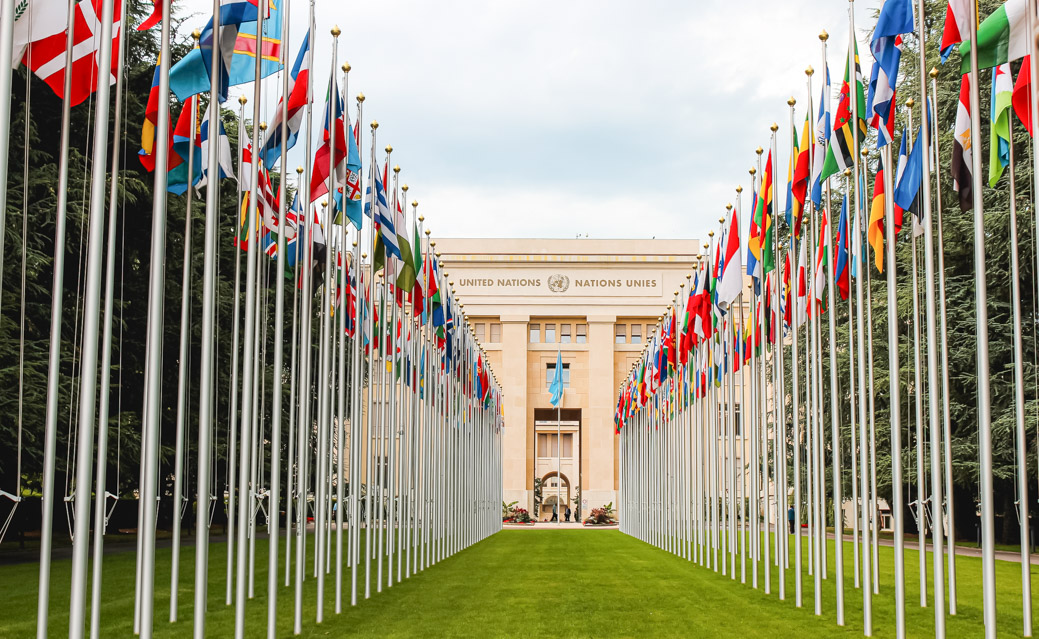Understanding genocide with Professor Patrick Leduc
How education can be used as a strategy to prevent genocide episodes.
Every year on September 21, the world celebrates the International Day of Peace, a day that strengthens ideals of amity and encourages non-violence and cease-fire. First established in 1981 by the United Nations (UN) General Assembly, this day is an opportunity to remember brave citizens who have worked hard to subside historical catastrophes around the world, including genocides.
The UN Office on Genocide Prevention defines genocide as “a crime that can take place both in time of war as well as in time of peace.” Genocides destroy, kill, and cause serious harm to national, ethnic, racial, or religious groups.
Professor Patrick Leduc, a PhD candidate in the sociology department, focuses his studies on the causes and consequences of genocide. His research explores how a return to peace and normalcy can be established after a genocide ends.
In his research, Professor Leduc asks: “How do we remember genocides and how do we reconcile this break in stability after a genocide has ended? How do you learn to forgive and reconcile the ones who may have wronged you?”
He views peace as a form of harmony, but acknowledges that for many, peace means non-violent stability. “Harmony is a far-reaching goal, but non-violence, social stability, tranquility are important criteria,” he explains.
Genocides are not random acts of terror by deranged individuals. They require careful planning, resources, and the cooperation of thousands—even millions—of people to commit the crime. The largest genocide in history took place in World War II, between 1941 and 1945, where six million Jewish men, women, and children were murdered by the Nazis. Germany’s allies, such as Hungary, Slovakia, Croatia, and Bulgaria, willingly deported Jews to concentration camps for execution. The reason? They believed Jews posed a threat to Germany.
“When people truly believe that a certain group is actively causing harm to livelihood and stability, it makes it easier to tolerate discrimination,” explains Professor Leduc. “It helps normalize the violence.” Of course, this is only one of the many causes of genocide.
Raising awareness about genocide is paramount, according to Professor Leduc. Individuals living in countries or communities experiencing episodes of genocide are often forced to act a certain way, usually out of fear for their own lives and safety. Nonetheless, the actions of those actively participating in the destruction of people or a particular group cannot be justified. Genocides instills fear, hate, and trauma in those involved. They forever change a country and its people’s history—leaving the nation a shell of what it used to be.
In 1944, Polish-Jewish jurist Raphael Lemkin, who lost 49 relatives during the Holocaust, coined the word “genocide” in an attempt to prevent the horror from happening ever again. In his book Axis Rule in Occupied Europe, he defined genocide as “a coordinated plan of different actions aiming at the destruction of essential foundations of the life of national groups.” Lemkin’s goal was to make genocide a crime under international law. Four years later, his hard work paid off after the UN approved the Convention on the Prevention and Punishment of Genocide.
Professor Leduc notes that one of the ways in which we can prevent genocides and promote peace is through mass education. The UN made the attainability of education a priority in third-world countries. Director-General of the United Nations Educational, Scientific and Cultural Organization (UNESCO), Irina Bokova, states that “the prevention of genocide starts on the benches of schools.” During the UN conference titled “Towards Inclusive Societies: Empowerment and Education as a strategy to prevent genocide,” Bokova adds: “Education can help prevent hate speech and undermine prejudice by weakening the grounds for ignorance, by promoting learning to live together, [and] by cultivating respect for all people.”
Some countries have the privilege of celebrating the International Day of Peace and enjoying the ceasefire that accompanies it, but in other nations and within other groups, peace doesn’t exist yet. For example, Rohingyas in Myanmar are still victims of ethnic cleansing because the state that fails to recognize them as part of their own society. Other genocide episodes still occur today, and do not get media attention in the West. These include the Darfur genocide and the Uyghur genocide.
International Day of Peace should not only be a day of ceasefire and remembrance, but a day where individuals start collectively taking action. Learning about genocide, attending protests, or donating to important causes can make a difference. Yet, according to Professor Leduc, people tend to believe that their voices don’t matter, but that simply is not true: “Evil prevails when good men do nothing. Standing up helps others break the trend of conformity,” he explains. As the UN’s Secretary General rings the Peace Bell on September 21, we must remember the words of Bokova: “History tells us humanity is capable of the worst and the best. This is why education is so essential—to transmit our collective history, to nurture respect for equality, human rights, and dignity, to fight against every form of hatred and discrimination. This is a struggle for the best of humanity.”

